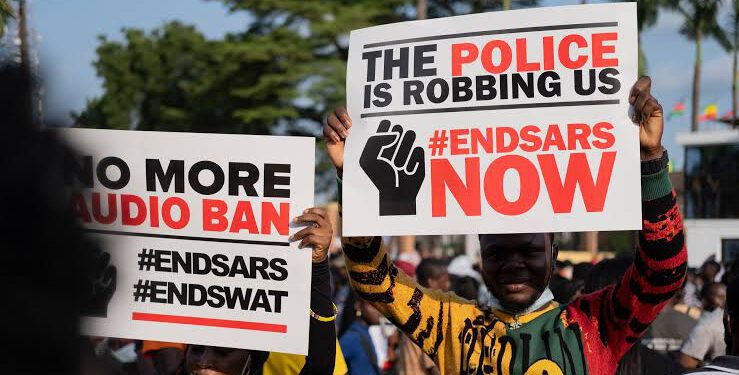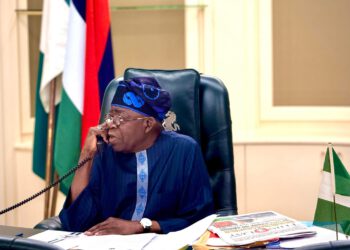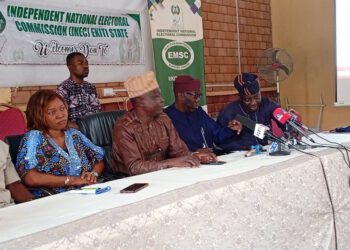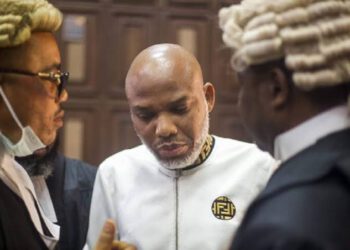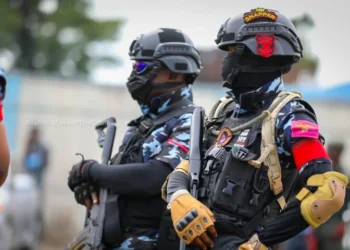On October 20, 2020, several Nigerian youths marked a date with history. In their number, they marched on different cities, demanding the proscription of the dreaded elite police unit –the defunct Special Anti-Robbery Squad, (SARS).
The then SARS had run wild. It officers were serially accused of carrying out torture, repression, extortion, and extra-judicial killings, among the other human rights abuses.
The protests against SARS atrocious existence were huge, social-media driven, internationalized, and well funded. Driven by youths, the protest was nuanced from what Nigeria had seen. It was carnival-themed, complete with partying, eating, and reveling across several venues. Even though the protests were successful, they soon morphed into a jamboree.
For days on the bounce, the Admiralty Toll Plaza, Lekki, in Lagos, became the cynosure of attention. Soldiers would later march on the toll plaza to greet protesters with their guns. Besides, there were reported incidents of extra-judicial killings in Mushin, Surulere –both in Lagos– and in few other places across the country. Since then, what we have seen in sufficient quantities are agony and recrimination.
Instead of any believable change, we saw what Fela Anikulapo in his lyrical putdown of government manipulation, called “Government Magic”.
One year after, on October 20, 2021, a number of brave Nigerian youths commemorated the police brutality protest. I commend them, and I make no pretensions of my supporting lawful protests for a better Nigerian society.
Moreover, I must make known my evaluation of the protest. I believe the youth participants could have done some things differently.
For starters, my first issue with the protest was when its arrowheads said it was a “leaderless” one. A captain sailing without a compass has predestined his voyage for perdition. Historical accounts of successful mass protests validate the need for an organised leadership leading and directing a cause. In its absence, a protest becomes no more than a mob adventure.
Nigerian youths in their demand for a better police and political change must know they are up against entrenched forces. The consciousness that these forces are liable for the systemic conundrums predating post–democracy Nigeria should have made better organising a necessity.
Based on this, strategic planning, engagement, negotiations, and–if need be–compromise should lead the programme of action. If the organizers of the October 20, 2020 protest had done this, they would have effectively served the government a robust menu of demands. And, which possibly could spur a political reordering.
Equally, such engagement, going in equal step with aggressive mobilisation, would have rung the alarm bell for genuine political change in the polity. Such enterprise could even morph into a political movement formidable enough to challenge the status quo. In any case, I am yet to see how anyone or group can effect a political change to a constitutional government without being politically amenable. Political aloofness and agitation for political change are ludicrously incongruous.
Despite its popularity, liberal democracy does not guarantee happiness for the winning majority. Let alone, the minority shunning the process. In our case, many youths prefer to rant on social media, as though it were the headquarters of the Independent National Electoral Commission (INEC).
Undoubtedly, social media penetration has gifted Nigerians more freedoms. In spite of this, social media rule hardly produces lasting change.
More than a decade after the Arab Spring, Egyptians are faced with an iron-fisted Abdel Fattah Sisi, after toppling democratically elected Mohammed Morsi. Ditto Tunisia, with its citizens sharply divided between opposition and support for President Kais Saled’s power grabs.
The import of this is that social media agitations alone cannot deliver change. The viable alternative for Nigerian youths is a coupling of social media agitation with strategic planning, political mobilisation, voter education, and political participation. While this is important, what would sustain a real political change is an ideological founding.
This said, government’s response to the memorial protest hardly showed it learned any lesson from the protests.
The unlearned lesson for government clearly is that suppression of popular protest is a ticking bomb.
It is capable of exploding when citizens’ anger is sufficiently inflamed. The cosmetic makeovers to the popular demand for police reforms may mask the problems, but only for an ephemeral period. In the first place, the October 20, 2020 protests sprouted from years of police brutality and criminal intimidation of citizens.
This in mind, the Nigeria Police Force remains the same, and so are its challenges too. Instead of carrying out holistic reforms, Nigerian government seems content with sprucing reputational deficit police organization.
The reality is that Nigeria Police Force remains underfunded, understaffed, ill trained, and unequipped. Its officers are still poorly paid, less incentivized, and with many living in ramshackle barracks. Yet, we demand these men to behave rationally.
What the government probably fails to know is that our police are the first indicator of our national prosperity. As police, there are pivotal in the chain of our criminal justice system and, therefore are duty-bound to promote justice. It is therefore befuddling that anyone will expect a police officer battling low self-esteem, due to his poor working and social conditions to promote justice.
Without a doubt, police effectiveness will rather ensure political stability and economic wellbeing of both the country and its citizens. Whereas absence of such is a quick invite to society upheavals sired by citizen discontent.
The foregoing underscores the necessity for youth involvement in the running of the country. It is time for Nigerian youths to grab the torch that will lead us all out of the dark hole of despondency. The time for convergent thinking out of our political quagmire is now!


